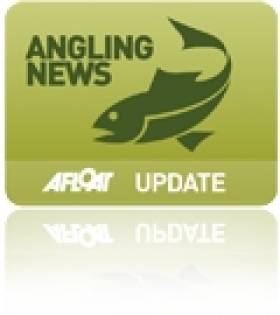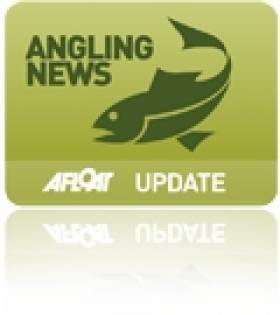Displaying items by tag: Carrickmacross
Man Escapes Jail for Illegal Fishing, Obstructing Officer
#ANGLING - A man narrowly escaped prison for obstructing a fisheries officer in a case taken by Inland Fisheries Ireland (IFI) at Carrickmacross District Court earlier this month.
Piotr Flaga - of Bog Road in Drogheda - was fined €450 by Judge Sean McBride after he was found to have set lines at a lake in Carrickmacross on 18 and 19 August last with the intention of taking coarse fish illegally.
The court heard that when apprehended by Assistant Inspector Ronan O’Brien, Flaga refused to co-operate and would not give his name and address. He then obstructed Asst Insp O’Brien by moving his vehicle towards him in a bid to escape when questioned.
Gardai were called to the scene and subsequently Flaga was issued with two summons.
Flaga entered a guilty plea and was convicted under Sections 301 and 308 of the 1959 Fisheries Act. He was further charged for breach of byelaw 595 of 1977 in relation to fishing in fresh water for coarse fish by means other than rod and line.
The defendant was fined a total of €450 with five months to pay with 14 days imprisonment in default. Some €500 in costs were also awarded to Inland Fisheries Ireland.
Judge MacBride acknowledged Flaga's public apology to Asst Insp O'Brien, but emphasised that any person who came before him in future for a similar offence would face imprisonment.
Poaching a Problem in Cavan and Monaghan Say Anglers
Anglers in Cavan and Monaghan have launched a new organisation to stamp out what they argue is a growing wave of illegal poaching.
Members of the Lake Watch group told The Anglo-Celt at a recent meeting that a number of organised poachers are operating in the two counties.
The poachers are said to be laying out set lines, long lines and nets on dozens of lakes in a single operation, then quickly loading the fish into vans for removal.
Monaghan baliff Brian Byrne accused both Irish and Eastern European anglers of poaching, camping on lake shores and dumping rubbish.
The meeting also heard that a group of Dublin anglers lit a number of coal fires on a lake shore in Carrickmacross in a two-week period.
Lake Watch members have discussed numerous strategies to combat the poaching wave, including nightly patrols, van seizures and even setting up hidden cameras.
The Anglo-Celt has more on the story HERE.

























































